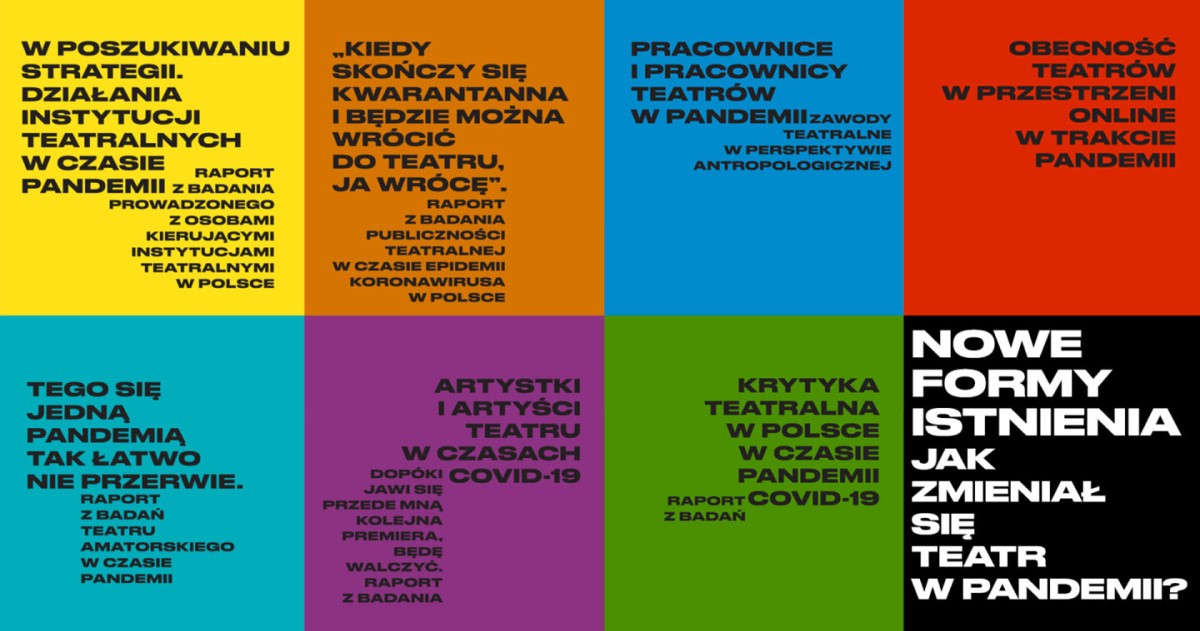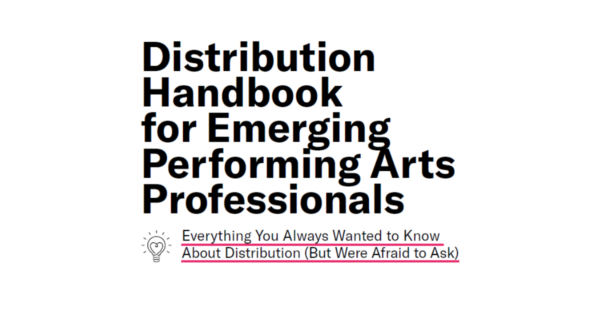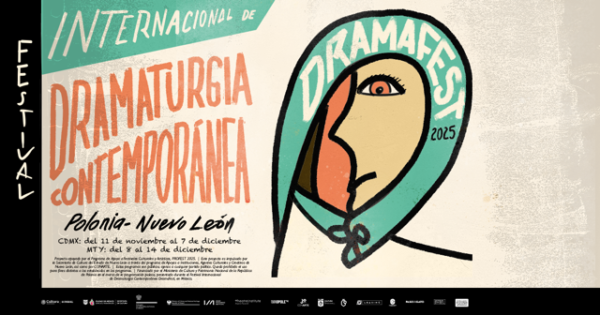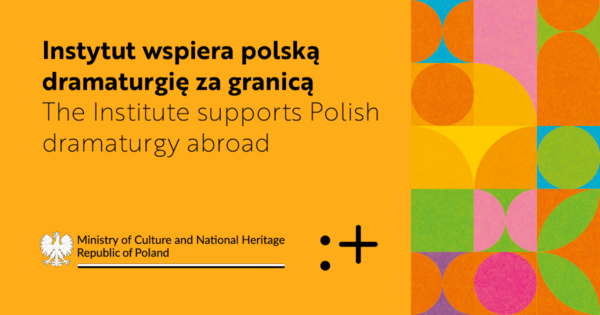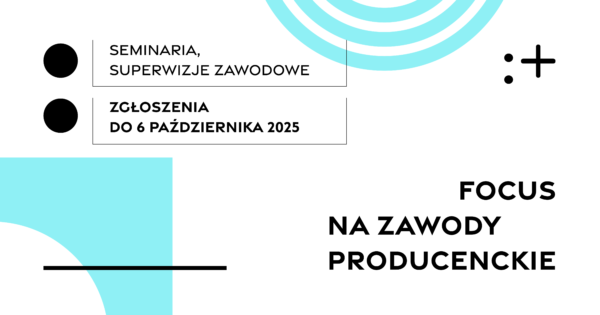We publish results of large-scale research on theatrical life in Poland. For many months, seven interdisciplinary research teams have looked into the changes taking place in Polish theatre. This has brought as a result a series of unique reports analyzing comprehensively the effects of the pandemic on the entire theatre ecosystem: ranging from theatre institutions and organizations through their employees to artists and the audience.
Why have we researched Polish theatre in the pandemic?
The pandemic has laid bare the fragility of the entire system.
Currently, my actions and professional plans are focused on struggling for survival.
Nothing will ever be the same again.
[quote from one of the statements made during the research “Theatre artists during COVID-19”]
A year has passed since the COVID-19 epidemic was announced in Poland. – The pandemic is an unprecedented situation in the history of Polish theatre. At the Theatre Institute, we try to respond to the needs communicated by the community on an ongoing basis. In addition to various forms of interim assistance, which is extremely important and undoubtedly necessary,nwe try to evidence and conduct ongoing research on this extraordinary time. The aim of the research project initiated in the first months of the pandemic is to capture the impact of the pandemic on the theatre community. “I am pleased with this initiative especially that it has been created at the grassroots, among the Institute’s employees, who have invited outstanding experts from all over Poland to carry out their research projects”, emphasizes the director of the Zbigniew Raszewski Theatre Institute, Elżbieta Wrotnowska-Gmyz.
One of the main goals of the conducted research has been to acquire knowledge that will affect the development of people, theatres and organizations, and thus potentially contribute to the minimization of risk and damage in the future. An impulse to initiate the works was Bogna Kietlińska’s publication of a survey on the functioning of the theatre audience during the lockdown. A team consisting of a few members of the Theatre Institute (composed of Maria Babicka, Joanna Biernacka-Płoska, Maria Bogdaniuk, Justyna Czarnota, Krystyna Mogilnicka) subsequently prepared a broader concept of researching the audience (including a particular group, i.e. critics) and theatres as such – public, independent as well as amateur. Our intention was to cover as many areas of theatrical life as possible. The multi-faceted character of the research was ensured by the invitation of representatives of various disciplines – sociologists, anthropologists and economists – who represent research centers in cities all over Poland. It was also supported by the combination of quantitative and qualitative research. Also, the spread of the research over time made it possible to interpenetrate and draw from the previous diagnoses, which makes the image presented in the reports even more interesting – explains Maria Babicka, one of the research coordinators.
What was the object of our interests?
We intended to create a complementary program that would constitute a scientific trace and record of the condition of the theatre during the crisis caused by the pandemic. We defined seven areas of theatrical activity, taking into account both the perspective of the audience and the institutions (both public and independent). As a result, reports were prepared on:
- strategies and activities of theatre institutions during the pandemic (“In search of a strategy. Activities of theatre institutions during the pandemic. A report on a study conducted
- among managers of theatre institutions in Poland”; Marek Krajewski and Maciej Frąckowiak, in cooperation with: Kamil Pietrowiak, Waldemar Rapior and Janina Zakrzewska). The survey was addressed to managers of over 900 entities conducting theatre activity, the data of whom are available in the database of the Barbara Kransodębska Theatre Documentation Department of the Zbigniew Raszewski Theatre Institute. The next stage involved in-depth individual interviews. We asked how theatres and their managers had reacted to the lockdown, what had presented the greatest difficulty and with what they had dealt without difficulty;
- situation of theatre employees (“Theatre employees during the pandemic. Theatre professions in an anthropological perspective”; Michał Bargielski, Anna Buchner, Katarzyna Kalinowska, Katarzyna Kułakowska and Maria Wierzbicka). The included analyzes have shown how the lives of employees of individual professional groups have changed – not only of the artistic team but also of the technical team, theatre administration, craft workshops, educational and literary departments, and audience service offices. The research also provides an insight into the operation of the independent theatre community. Over 260 people participated in the research;
- theatre audience (“When the quarantine is over and it is possible to come back to the theatre, I will come back. Researching the theatre audience during the coronavirus epidemic in Poland”; Bogna Kietlińska). Over a month and a half (April–May 2020), 675 persons took part in the research. It was aimed to check whether during the pandemic theatre audience uses – and if so, to what extent – the remote offer of theatres;
- online presence of theatre (“The online presence of theatres during the pandemic”; Anna Buchner, Katarzyna Fereniec-Błońska, Katarzyna Kalinowska, Maria Wierzbicka). The researchers were looking for answers to questions what the online presence offers to the theatre and how this significant experience changes the theatre, as well as what the audience thinks about it. The research problem has been described from the perspective of viewers, theatres and internet reach;
- situation of theatre artists (“Theatre artists during COVID-19”; Dorota Ilczuk in cooperation with: Anna Karpińska, Emilia Cholewicka, Ewa Gruszka-Dobrzyńska, Kuba Piwowar and Ziemowit Socha). The report provides answers to questions i.a. how theatre
- artists coped with the pandemic at its different stages, where they were looking for help, to what extent the lockdown affected their well-being, mental health and plans. 749 participants from all over Poland took part in the research supervised by Dorota Ilczuk at the turn of October and November 2020, and the adopted methodology allowed to collect data representative of the whole population of theatre artists in Poland;
- theatre criticism (“Theatre criticism in Poland during the COVID-19 pandemic”; Małgorzata Ćwikła, Marcin Laberschek, Waldemar Rapior, Zofia Smolarska). The authors intended to find out about the situation of people “accompanying the theatre” – writing, discussing and asking in other ways about its current situation as well as paths of potential development; they also looked into the phenomenon of theatre criticism in a comprehensive manner, attempting to define its boundaries and significance in the theatre ecosystem;
- amateur theatre (“This cannot be interrupted so easily by one pandemic. A report on research into the amateur theatre during the pandemic”; Maria Babicka, Marek Dudkiewicz). The aim of the study was to recreate the fate of the amateur theatre movement during the pandemic from the perspective of team leaders and to capture the specificity of the activities of those who run theatre groups.
